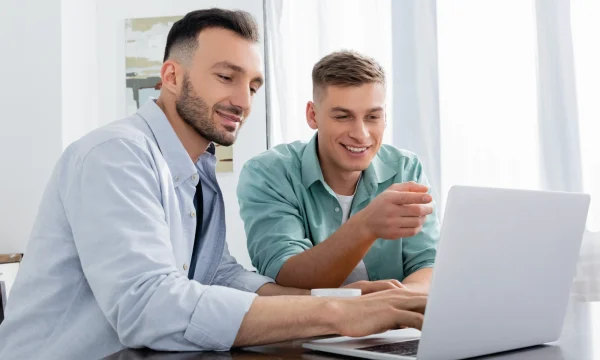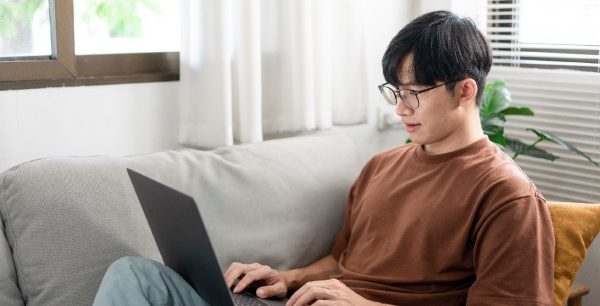How to Use a VPN
The Internet abounds with security threats. Every time you log onto a public network, you run the risk of revealing personal information. Even your home network allows your Internet provider to track your browsing patterns. To keep your data private, you can use a VPN to give you a secure connection when you go online.
How Does a VPN Work?
A virtual private network creates a safe tunnel for your online interactions. When using a VPN, your device makes an encrypted connection to a server hosted by the VPN service. The sites you visit while connected to the VPN will not know your identity or location. Instead, it will appear that the anonymous VPN server is making the connection.
Best Uses of a VPN: How To Use It Properly, Efficiently
To start using a VPN, all you have to do is set it up, so your device can recognize it as a program, and connect to a VPN server or location of your choice. After this process, you can instantly use it for different purposes. Here are the various uses of a VPN for every type of internet user:
Go Private Online
Whether you’re browsing, shopping, playing games, streaming, or downloading, a VPN can give you absolute privacy. You can use it to hide your digital footprints from hackers, advertisers, and regulatory bodies. You can prevent them from snooping.
→ Dig Deeper: Digital Footprints & Privacy Concerns
Defeat Territory Restrictions and Censorship
Getting past geo-blocking is one of the best uses of a VPN. Since you’re allowed to enter other servers, you can change your location and get access to content restricted to your country or region. With a VPN, you can shop in retail stores outside your residence, play games not yet available in your location, and access region-specific content from streaming services.
Encrypt Your Personal Information For Protection
With a VPN, you can automatically encrypt your data and personal information, such as passwords, bank information, and addresses. You can use VPN encryption to protect your online information within the client-server connection and ensure that no one from the Internet can access it.
Outsmart Hackers, Marketers, Regulatory Bodies
Without a VPN, you’re practically giving away easily accessible information about yourself to marketers, hackers, and regulatory bodies. They can use some of these to their advantage. With a VPN, you wouldn’t be able to spoon-feed them with information. A VPN won’t give anyone access to your IP address, location, and online habits. This privacy layer will prevent marketers from tracking your behavior and buying habits, hackers from potentially stealing your information, and regulatory bodies from restricting your activities.
→ Dig Deeper: Do I Need to Hide My IP Address?
Connect to Any Network Securely
You can use a VPN to protect your device and data wherever you go. With a reliable VPN, you can safely connect to public and private Wi-Fi connections, access public content, and make sensitive transactions.
→ Dig Deeper: Why You Need to Watch Out When Using Public Wi-Fi
Try Out Other Cool Things Only a VPN Can Do
The general ways of how to use a VPN we’ve mentioned earlier are just part of the surface. There are other cool things you can do with a VPN, such as the following:
- Torrent safely and privately
- Maximize your bandwidth outside your ISP’s knowledge
- Save money on online purchases through virtual locations
- Unblock social media usage in countries with censorship
- Save money on overseas VOIP communication (WhatsApp, Skype, Messenger)
How to Choose a VPN Provider
After learning how to use a VPN, the next step is to choose a provider. While the McAfee Secure VPN is already one of the most inclusive services in the market, there are many networks from which to choose. It is always best to explore your options to find a provider that gives the service you need at an affordable price based on your device and needs.
Several features matter when choosing a private network, such as:
Price: Free or Paid Subscription
One major thing to consider is the price—or the lack thereof—of the VPN service. You can use a VPN for free, but you can only access basic and limited features. This type of VPN is ideal for casual and occasional browsing. With a paid subscription, you can access a wide range of features and apply the many uses of a VPN using your device.
Ease-of-Use
You do not want a VPN that makes connecting to the Internet more challenging. You also need to consider the types of devices that you will connect to the network. Connecting a stationary desktop to your home network is typically easier than connecting a mobile device.
Speed
VPN speeds can be unpredictable. Heavy traffic on a server will slow down the rate of data transfer. Your service should provide information about which servers have the fastest connection at the moment. Some users try out several networks before they find one that meets their needs.
Security
The level of data encryption is an important consideration. Consumers and businesses are attracted to VPNs because of their privacy and data safety measures, but not all encryption techniques are the same. If you are serious about security, you should look for a network with the encryption level used by financial institutions. Bank-grade encryption is at least 256-bit AES.
Virtual Locations
If you are looking for local or regional content from a specific country, you will want to choose a service with a server in that location. Your connection may be slower than a local server, but you can bypass some location restrictions on content.
Flexibility
VPN services vary as to how many devices you can connect to the network at one time. Some networks offer a lower price if you use the VPN for a single computer. Connecting other devices may require a more expensive package.
Split tunneling is another option that some VPNs offer. This feature allows users to choose which apps will travel through the VPN. You can use the private network for business and other applications requiring greater security and employ a faster network for gaming or streaming.
Why use a VPN?
When you know how to use a VPN and are considering getting one, you may have questions about the service. Trying out new technology can be a challenge. Fortunately, the VPN world has been expanding to address consumer security needs. Most users are even surprised at how easy it is to make their first connection.
Some security experts recommend using a VPN whenever possible, but most people use the service for a specific reason. The primary concern for network users is security. Public networks often have lower security protocols that make them attractive targets for cybercriminals. People who frequently make connections with public networks may want the added protection of a VPN.
Government censorship or location restrictions are another reason you might choose to use a VPN. Most providers have servers in locations around the world. Connecting to a server in a foreign country can give users access to location-restricted content.
Setting Up the VPN Service
Once you have chosen your provider, you must connect your devices to the network. For most users, this is a simple process.
Connecting through an App
Commercial VPN providers want to make their service as easily accessible as possible. These companies have developed apps that you can install on your device. The application will walk you through the installation and connection process. An advantage to working with an app is the easy availability of information, such as current data speeds and server locations.
Connecting through Device Settings
Older operating systems may require some extra work to connect to a VPN. In this case, you may have to configure your device settings to make the connection. Some users may want to configure their device so that it will only connect to the private network. Your provider will have online documentation to get you through the process. This method is appropriate if you usually connect to the same server. If you want to connect to a server in another location, it will take some additional configuring.
Connect to a Server
The final step in working with a VPN is connecting to the network’s server. Most users want to connect to a server with the fastest speeds and strongest connection. Typically, this will be a server located in your geographic region. Even though information moves quickly on the web, sending a signal halfway worldwide and back will still cause some lag. Your VPN app may provide a list of suggested servers that will give you the best service.
If you want to know how to set up a VPN on any device using different methods, read our guide here.
Keeping Your Digital Life Secure
Using a VPN offers an additional layer of privacy and security to your online experience. However, protecting your information and devices will still require some basic safety measures. Even with a VPN, it is best to connect to a password-secured network on your end. This practice will minimize the chance of a cybercriminal intercepting your signal before you make a secure connection.
A virtual private network will not protect you from viruses or other malware that you download to your device. It is critical to work with a dynamic anti-malware product that interrupts and quarantines unsafe programs. At McAfee, we specialize in keeping every aspect of your online experience safe with antivirus and VPN solutions through McAfee+ and Secure VPN.
 Home
Home








